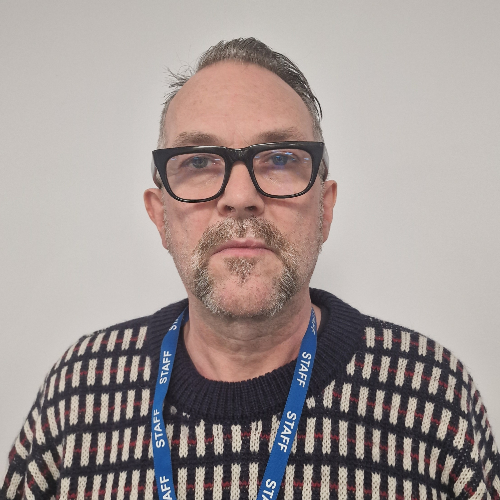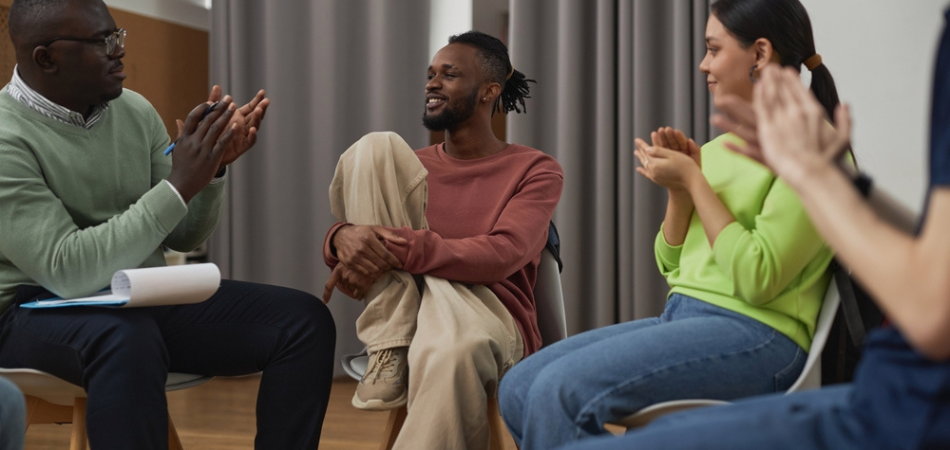
Written by:

Medically Reviewed by:
Last Updated:
March 4th, 2025
Dihydrocodeine Addiction Treatment | Detox and Rehab
If you’re ready to live without Dihydrocodeine, Linwood House is here to help you make that change. We understand that Dihydrocodeine addiction is complex and quitting isn’t easy but we have witnessed many people just like you overcome it. Imagine waking up and feeling free, not needing to rely on a pill to get through the day. Our team will help make that dream a reality and help restore the health and happiness that Dihydrocodeine took away from you.

A new dawn with Dihydrocodeine detox
We know the idea of Dihydrocodeine detox can be scary, especially if you have tried to quit before and have had a taste of the withdrawal symptoms that can emerge. It is important to understand that undergoing medical Dihydrocodeine detox at Linwood House is nothing like attempting cold turkey on your own.
First, you will have a dedicated detox team who will assess your health, plan and supervise your detox and be available 24/7 for your support.
Second, we use a gradual tapering method to reduce your Dihydrocodeine dose gradually. This proven approach helps to minimise the intensity of Dihydrocodeine withdrawal symptoms so they don’t overwhelm you or put you in any danger.
Third, we can provide medicines to help manage any particularly difficult withdrawal symptoms you might experience. These can be tailored to your needs and adjusted as necessary to keep you comfortable.
Finally, our compassionate team offers constant emotional support in addition to medical support. Dihydrocodeine detox can be an emotional challenge, but our staff is here to listen, reassure and encourage you through every step of the process.
Dihydrocodeine withdrawal symptoms
Dihydrocodeine withdrawal symptoms mirror those of other forms of opioid addiction. These usually include:
If you have been using Dihydrocodeine or other drugs for a long time or if you are in poor physical and mental health, you may also be in danger of developing more severe symptoms such as:
- Rapid heartbeat
- High blood pressure
- Severe agitation
- Depression
Linwood House has vast experience helping people through Dihydrocodeine detox, so if you are in danger, our detox team will act quickly and decisively to keep you safe.
Dihydrocodeine withdrawal symptoms will usually start within the first day. Symptoms will peak around days three to seven with gradual improvements for the next week. In most cases, the end of week two will see the cessation of most symptoms, but you may have some continuing anxiety and sleep problems.
Generally speaking, a couple of weeks should be enough to have you feeling fresh and more focused to move on to Dihydrocodeine rehab.
Restoring balance through Dihydrocodeine rehab
It has long been understood that addiction is not just a physical dependency, which is why Dihydrocodeine detox alone is not enough for a lasting recovery. Real, lasting changes happen during Dihydrocodeine rehab, where you dig deeper into the emotional, mental and social reasons behind your Dihydrocodeine use. Maybe you turned to Dihydrocodeine to escape stress, manage pain or cope with difficult feelings.
Our approach is holistic, meaning we focus on healing your mind, body and spirit. By addressing all aspects of your well-being, Dihydrocodeine rehab will take you on a journey of self-discovery, where you will find out what truly makes you happy and how to live a sober, fulfilling life.
Dihydrocodeine rehab therapy at Linwood House
Our treatment programmes combine traditional evidence-based therapies with complementary, holistic ones for a balanced recovery. These include:
Individual therapy
This involves private sessions where you get to talk to a therapist about what’s going on in your life. They help you figure out why you have been using Dihydrocodeine and better ways to handle the things that are causing you stress and unhappiness.
Group therapy
Group therapy allows you to share your time with other people who have gone through similar challenges. You will all talk about your experiences and help each other through the ups and downs of rehab, building relationships that can turn into lifelong friendships.
Family therapy
This is when your family joins you in working through family and Dihydrocodeine issues with your therapist. Everyone gets to share how they feel so you can work on getting along better and understanding the impact that drug use has had on your loved ones.
Dialectical behavioural therapy (DBT)
Think of DBT as a method to retrain your mind’s thought processes. Your therapist will guide you in identifying negative thoughts and teach you techniques to modify, disregard, or accept them. By doing so, DBT prevents these thoughts from prompting reactions that could lead to Dihydrocodeine use.
Holistic therapies
These are fun, peaceful activities like yoga, art and meditation that help you relax and feel good without using drugs. They make you feel better in your mind and body, so Dihydrocodeine is no longer needed as a crutch.
Dihydrocodeine relapse prevention
Getting off Dihydrocodeine is a major milestone in your recovery journey. While the road ahead may seem daunting, we are here to support you. During your time in Dihydrocodeine rehab, we will help you build a robust plan to handle life’s challenges without falling back into old habits. This will include:
Staying connected to support
Your friends, family and therapists are the best people to talk to when things get tough. They care about you and want to help you stay on track, so don’t keep them in the dark, and make sure you reach out if you are ever struggling.
Continuing therapy and group work
The easiest way to do this is with Linwood House’s aftercare programme. We invite everyone who has completed Dihydrocodeine rehab to weekly group therapy sessions for the first year. These are free of charge and can help you stay focused and deal with any problems. You can also join a local support group like Narcotics Anonymous to meet people who understand exactly what you’re going through.
Finding new hobbies
Discover new activities that you enjoy and that keep you busy. It could be sports, drawing, playing an instrument, or just continuing the yoga you started during rehab. Having fun things like these to keep you busy can keep your mind off Dihydrocodeine and is a great way to let off steam.
Setting goals and celebrating them
Setting small, achievable goals gives you something to work towards. It could be things like doing well in school or work, learning a new skill, or reaching a recovery milestone. Reaching these goals can give you a sense of accomplishment and a great chance to celebrate with your loved ones.
Practising stress and trigger management
Triggers are anything that makes you want to use Dihydrocodeine, and finding ways of dealing with them is key to relapse prevention. Stress and certain people, situations and places where you used to do drugs can all bring back old memories and reactions. Some may be avoided for a while, and others must be avoided forever. Find what works best for you and use all the stress-management techniques you developed in rehab.
Start treatment for Dihydrocodeine addiction at Linwood House
Imagine waking up feeling free and healthy, no longer relying on Dihydrocodeine to get through the day. Linwood House can help you realise this goal with our comprehensive treatment programmes. Contact us today and take the first step towards a whole new life.


